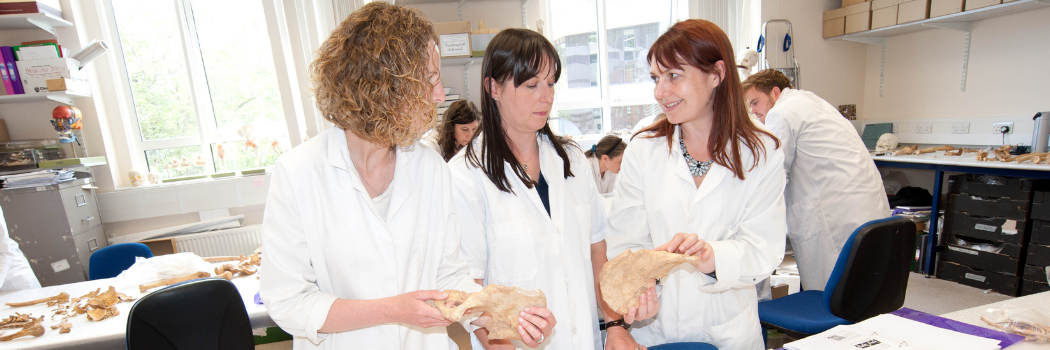Improving the identification of human remains

Our Department of Archaeology’s innovative research is helping the world’s forensic scientists to better identify human remains.
Their ground-breaking research has enhanced the retrieval of evidence and improved the identification of remains and has led to significant advances in the field of forensic analysis both nationally and internationally.
Enhancing knowledge for practitioners
Professor Rebecca Gowland launched the Body Location, Recovery and Identification short course in 2009, which was the first of its kind to be approved by the Chartered Society of Forensic Sciences.
The course has trained forensic and civil contingency practitioners and investigators from Beirut, Libya, Malaysia, UK and Western Europe, which has led to delegates adapting Durham’s course content for their professional and training needs.
Professor Gowland developed an online version of the Forensic course in collaboration with the International Committee of the Red Cross, which has since had 25,000+ learners from over 140 countries. This course has recently been translated into Russian.
Re-discovering the skeletal analysis process
Her research explores how during a person’s lifetime their skeleton will be subtly altered by socio-cultural and environmental factors. After death, it preserves key information about an individual’s life that can be crucial when identifying their remains in forensic contexts.
Much of her research has focussed on vulnerable demographics such as infants and the elderly, to identify cases of infanticide, neglect, and abuse.
She has also developed innovative statistical approaches to improve estimations of age at the time of death, which is vital for building the deceased’s profile in criminal investigations.
Professor Gowland has worked with fellow Durham researcher Professor Janet Montgomery to develop a new technique that allows reliable and cost-effective sex determination in infant, juvenile and fragmentary skeletons for the first time.
As a direct result of her pioneering work and the reputation of her training course, Professor Gowland has been invited to take up special advisor roles in many high-profile international forensic cases.
Find out more
- Learn more about the work of Professor Rebecca Gowland, in our Department of Archaeology, Deputy Executive Dean (People and Culture) in the Faculty of Social Sciences and Health, and Fellow of Wolfson Research Institute for Health and Wellbeing.
- Learn more about the work of Janet Montgomery, Professor in our Department of Archaeology and Member of our Institute of Medieval and Early Modern Studies.
- Read about the research on micro-CT analysis of diagenesis in Romano-British infant skeleton, estimation of adult skeletal age-at-death and sex determination of human remains.
- Interested in studying at Durham? Explore our undergraduate and postgraduate courses in Archaeology.


/prod01/prodbucket01/media/durham-university/external-location-photography-/city-shots-/82922-1920X290.jpg)